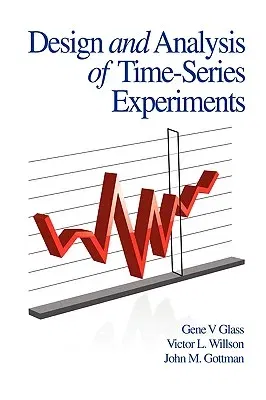Hailed as a landmark in the development of experimental methods when it
appeared in 1975, Design and Analysis of Time-Series Experiments is
available again after several years of being out of print. Gene V Glass,
Victor L. Willson and John M. Gottman have carried forward the design
and analysis of perhaps the most powerful and useful quasi-experimental
design identified by their mentors in the classic Campbell & Stanley
text Experimental and Quasi-experimental Design for Research (1966). In
an era when governments seek to resolve questions of experimental
validity by fiat and the label "Scientifically Based Research" is
appropriated for only certain privileged experimental designs, nothing
could be more appropriate than to bring back the classic text that
challenges doctrinaire opinions of proper causal analysis. Glass,
Willson & Gottman introduce and illustrate an armamentarium of
interrupted time-series experimental designs that offer some of the most
powerful tools for discovering and validating causal relationships in
social and education policy analysis. Drawing on the ground-breaking
statistical analytic tools of Box & Jenkins, the authors extend the
comprehensive autoregressive-integrated-movingaverages (ARIMA) model to
accommodate significance testing and estimation of the effects of
interventions into real world time-series. Designs and full statistical
analyses are richly illustrated with actual examples from education,
behavioral psychology, and sociology.


